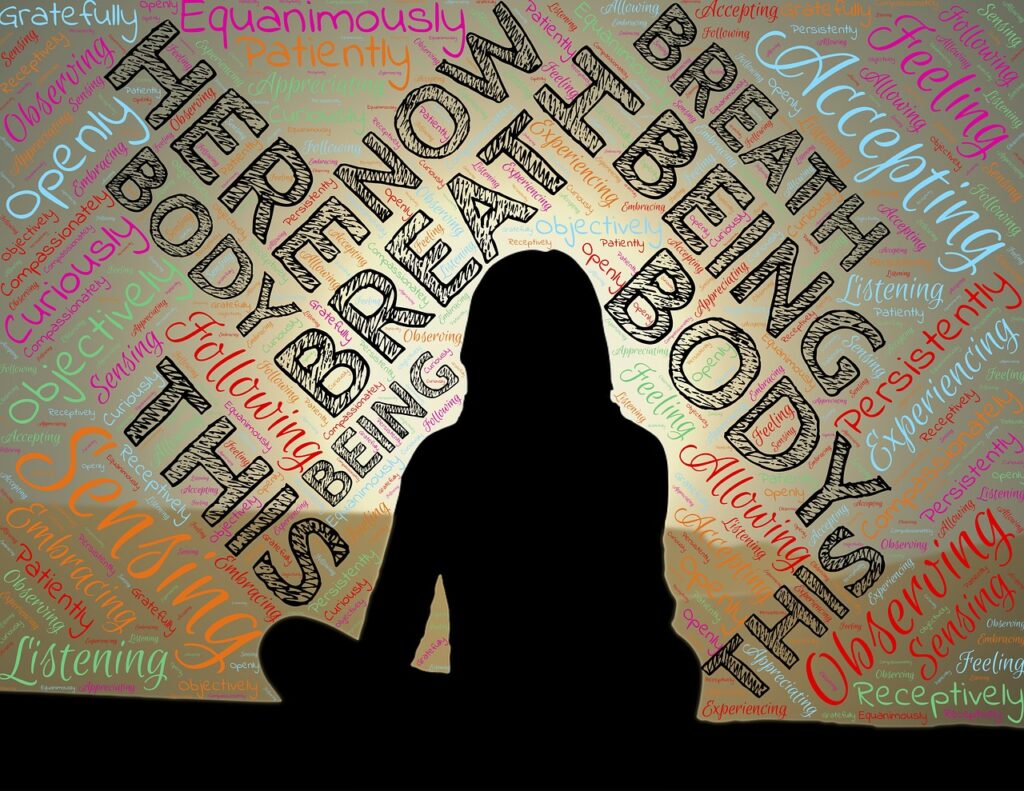Mental Health has been a topic of discussion in the past few years, and for good reason. Mental illness is widespread and affects many people, yet it’s still stigmatized. But recognizing the signs of mental illness and seeking help can make a world of difference. In this blog post, find out how to take care of your mental health so that you can stay on top of your game!

What Is Mental Health?
Mental health is a term used to describe a person’s psychological well-being. It includes how we think, feel, and behave. Mental health is important at every stage of life, from childhood and adolescence through adulthood.
Good mental health isn’t just the absence of mental health problems. Being mentally healthy means feeling good about yourself and being able to function well in day-to-day life. Everyone has times when they feel down or stressed, but if you’re able to manage these feelings and get back to your usual self relatively quickly, this is a sign of good mental health.
There are many factors that contribute to mental health, including our genes, environment, and relationships. Taking care of our physical health is also important for our mental well-being. Eating a balanced diet, getting regular exercise, and getting enough sleep are all keys to maintaining good mental health.
If you’re struggling with your mental health, there is help available. Talk to your doctor or mental health professional about what you’re experiencing. They can provide support and guidance on how to get back on track.

Ways to Keep Your Mental Health in Shape
It’s no secret that mental health is important. But what exactly does that mean? And how can you keep your mental health in shape?
Here are some ways to keep your mental health in top shape:
1. Get regular exercise. Physical activity helps to release endorphins, which have mood-boosting effects. Exercise can also help to reduce stress and anxiety levels.
2. Eat a healthy diet. Eating nutritious foods helps to improve overall energy and mood levels. Nutrients such as omega-3 fatty acids, magnesium, and vitamin B6 have been shown to be particularly helpful for mental health.
3. Get enough sleep. Sleep plays an important role in mental health by helping to regulate mood and reduce stress levels. Most adults need around 7-8 hours of sleep per night.
4. Connect with others socially. Spending time with loved ones or participating in social activities can help reduce feelings of loneliness or isolation, which can trigger or worsen mental health problems.
5. Challenge negative thinking patterns. If you find yourself ruminating on negative thoughts, try to challenge them with positive affirmations or reframing techniques. This can help to prevent negative thinking from spiraling out of control and causing distress.
6. Seek professional help if needed. Don’t be afraid to seek professional help if you’re struggling with your mental health. A therapist can provide support and guidance through difficult times.

How To Handle Stress
It’s no secret that stress can have a serious impact on our mental health. If left unchecked, it can lead to anxiety, depression, and even physical illness. But the good news is that there are things we can do to manage our stress and keep our mental health in tip-top shape.
Here are some tips for handling stress:
1. Identify your triggers. What are the things that tend to trigger your stress? Once you know what they are, you can try to avoid them or be prepared to deal with them in a healthy way.
2. Develop a support system. Surround yourself with people who make you feel good and who you can rely on when times get tough.
3. Make time for yourself. Dedicate some time each day to do something that makes you happy – whether it’s reading, taking a walk, or listening to music.
4. Don’t bottle up your emotions. Talk to someone about what’s stressing you out – whether it’s a friend, family member, therapist, or hotline operator. Getting your feelings out will help you feel better and may give you some perspective on the situation.
5 . Take care of your body. Stress can take a toll on our bodies as well as our minds, so it’s important to take care of yourself physically too. Eat healthy foods, exercise regularly, and get enough sleep.

How To Deal with Anxiety
If you’re struggling with anxiety, know that you’re not alone. Anxiety disorders are the most common mental health disorder in the United States, affecting 40 million adults. While there is no one-size-fits-all solution for managing anxiety, there are some helpful tips and techniques that can make a big difference.
One of the most important things you can do is to educate yourself about anxiety and how it affects your mind and body. This will help you to understand your own symptoms and triggers, and find ways to better manage them.
It’s also important to find healthy coping mechanisms and develop a support system. This could include family and friends, a therapist or counselor, or an anxiety support group. Talking openly about your anxiety can help to lessen its hold on you.
Finally, don’t forget to take care of yourself physically. Eating a balanced diet, getting regular exercise, and getting enough sleep are all crucial for managing anxiety (and overall mental health). Making these self-care practices a priority will go a long way in keeping your anxiety at bay.
How To Get Rid of Negative Thoughts
It’s no secret that our mental health can take a toll on our overall well-being. When we’re feeling down, it can be hard to get out of that negative headspace. But it’s important to remember that our mental health is just as important as our physical health, and we need to take care of it just as much.
Here are some tips on how to get rid of negative thoughts:
1. Acknowledge your thoughts. Don’t try to push them away or ignore them. Accepting that you’re having negative thoughts is the first step to dealing with them.
2. Identify the source of your thoughts. Once you know where they’re coming from, you can start to work on addressing the issue.
3. Reframe your thinking. Instead of dwelling on the negative, try to look at the situation in a positive light. This can be difficult, but it’s important to remember that every cloud has a silver lining.
4. Practice mindfulness. Pay attention to your thoughts and feelings in the present moment without judging them. This will help you break the cycle of negative thinking.
5 . Seek professional help if necessary. If you find that you can’t seem to shake your negative thoughts, it may be time to seek help from a mental health professional.
Conclusion
Mental health is so important, and yet it’s often overlooked in favor of other things. If you’re struggling with your mental health, know that you’re not alone and there are resources available to help you. Remember to check in with yourself often, be honest about how you’re feeling, and take care of yourself both mentally and physically. With a little effort, you can improve your mental health and create a life that you love.



Good day! I just want to offer you a big thumbs up for your excellent information you have got here on this post. Ill be coming back to your blog for more soon.